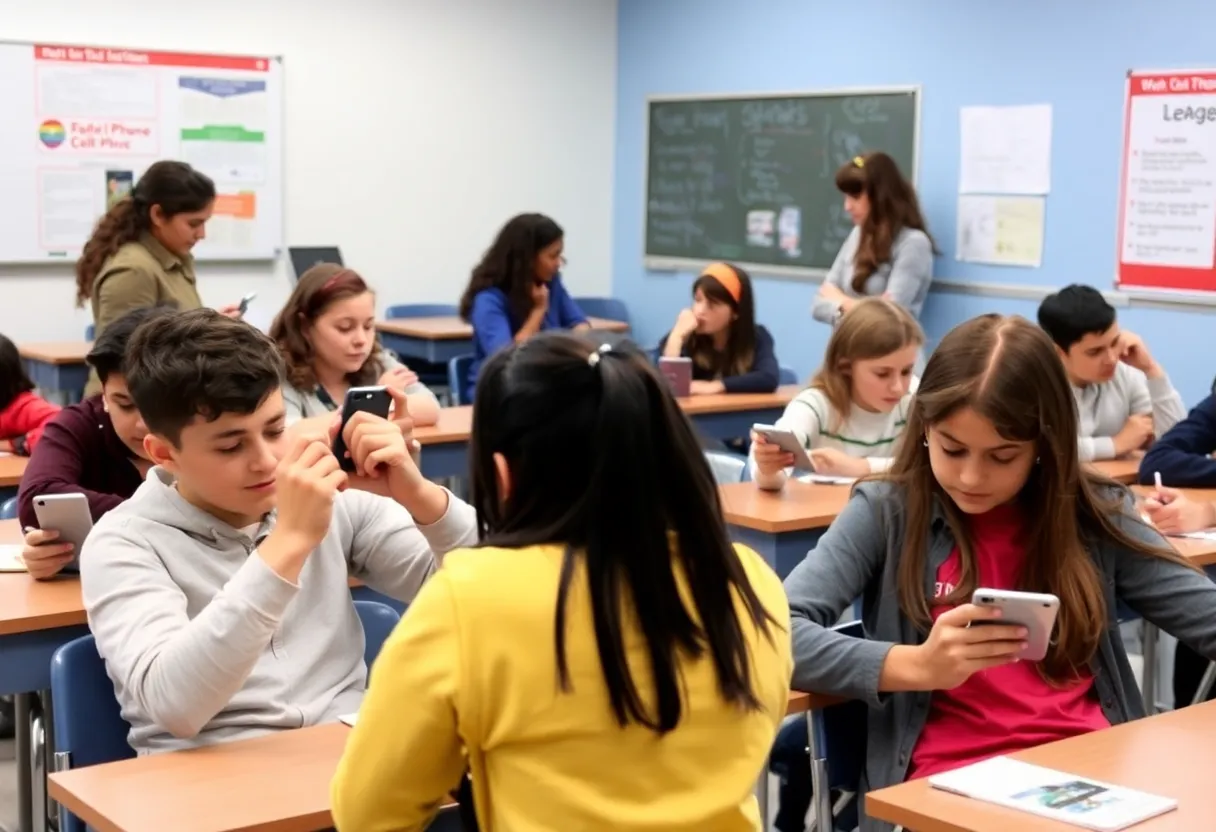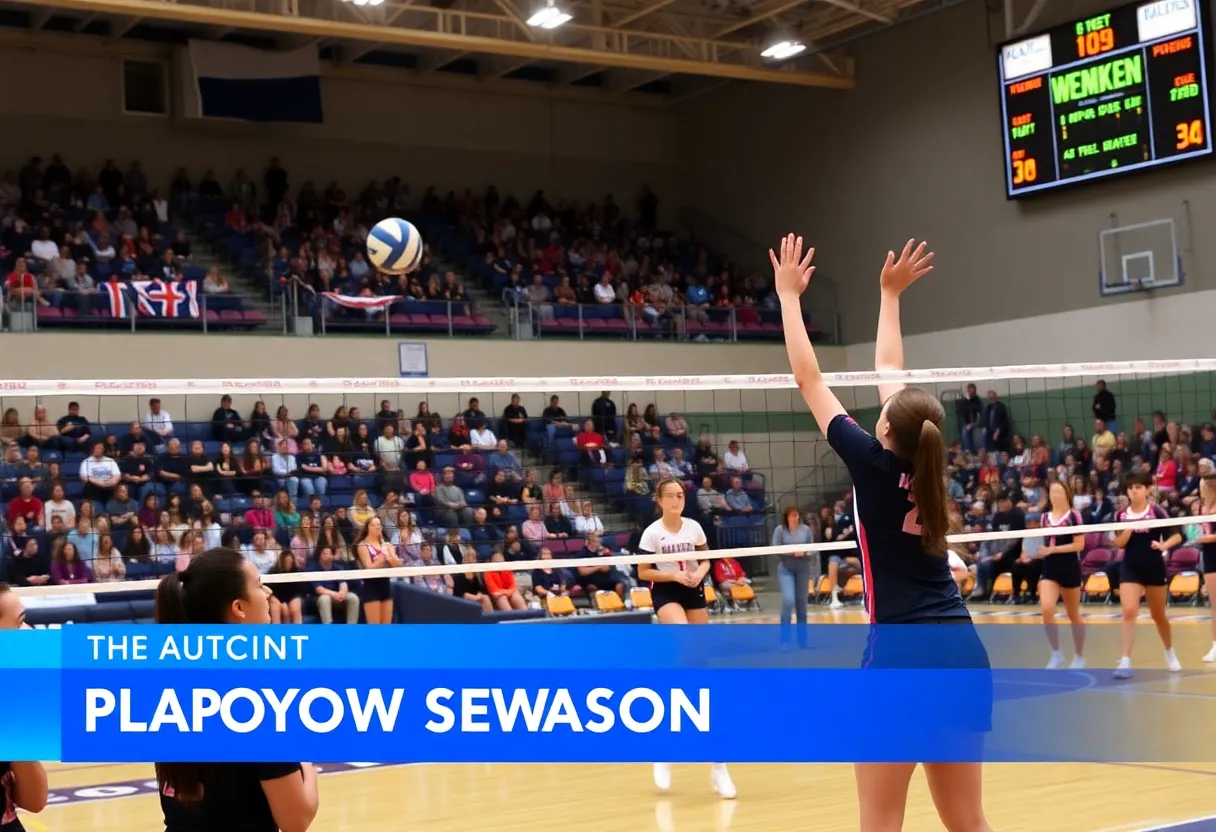News Summary
Nevada classrooms are seeing increased student engagement due to Senate Bill 444, which restricts cell phone use. Schools are reporting higher attention and work submission rates, with policies already being implemented before the official deadline. The initiative has garnered support from educators and students, fostering better communication and social interactions, although challenges in enforcement remain. Nevada joins a national movement, aligning with several other states to limit cell phone distractions in schools, ultimately aiming to enhance the educational experience while addressing safety concerns.
Las Vegas, Nevada
Nevada classrooms are experiencing a remarkable transformation in student engagement following the enactment of Senate Bill 444, which imposes restrictions on cell phone use in educational settings. Just two weeks into the new academic year, schools across the state have recorded significant increases in student attention and work submission rates.
Signed into law by Governor Joe Lombardo, Senate Bill 444 mandates that all school districts in Nevada create policies governing the use of electronic devices, particularly cell phones, in classrooms. Although schools are required to fully implement these policies by July 1, 2026, many districts have already taken proactive measures ahead of this deadline.
The bipartisan bill received widespread support in the Nevada Legislature, passing unanimously and underscoring a collaborative effort to address growing concerns about student distractions in the age of technology.
Policy Implementation
One major player in this initiative, the Clark County School District, has introduced a policy which requires students to secure their mobile devices in non-locking, signal-blocking pouches during class time. This measure is set to take effect in the 2024-2025 school year. In contrast, the Washoe County School Board has opted for a stricter approach, known as the “Phone Away and Learn Today” policy, which mandates that students keep their phones stored in lockers throughout the school day.
To encourage compliance, educators have adopted various innovative methods, including trading classroom fidget toys for students’ phones upon entry. Feedback from teachers highlights a dramatic uptick in student productivity attributed to reduced phone usage.
Positive Outcomes
Feedback from the student body indicates that the initiative has fostered improvements in social interactions and communication. Senior student body president from Carson High School reported a noticeable decline in incidents of violence, attributing this to the encouraging phone-free environment. Other students have echoed similar sentiments, noting that less reliance on smartphones has led to more face-to-face conversations and deeper peer connections.
Concerns and Challenges
Despite these reported successes, challenges remain, particularly concerning the enforcement of phone policies. Inconsistencies exist among different classrooms within the same school, leading to confusion regarding rules and expectations. Survey data reveals that 97% of teachers and 69% of families perceive cell phones as detrimental to student behavior, reinforcing the necessity for consistent enforcement practices across the board.
Schools have also developed protocols to address potential concerns raised by parents regarding emergency communication. Measures ensure that urgent messages can still reach students through official school channels, maintaining a balance between safety and educational focus.
National Context
The implementation of these restrictions aligns with a rising national trend, as Nevada joins 16 other states this academic year in introducing new limitations on cellphone use within schools. Research highlights that excessive cellphone use can undermine the educational experience, prompting legislative actions aimed at curbing distractions.
While many educators and some parents express support for the measures, there are ongoing concerns about the necessity of immediate access to children during school hours, particularly in emergencies. The balance between enhancing student engagement and ensuring safety continues to be a topic of discussion among stakeholders.
As Nevada schools adapt to these new regulations, initial feedback indicates promising outcomes. Nonetheless, continued monitoring and adjustment of policies may be necessary to achieve the goal of fostering both student engagement and safety in the classroom.
Deeper Dive: News & Info About This Topic
HERE Resources
Nevada Schools See Increased Student Engagement with Cellphone Restrictions
Nevada Schools Enforce Statewide Cell Phone Ban
Nevada Faces Educational Funding Challenges Amid Revenue Decline
Trump’s Tariff Plans Cast a Shadow on Tech Industry
Additional Resources
- The Nevada Independent: Student and Teacher Reactions to Phone Restrictions
- News 3 LV: Governor Signs Bill Banning Cell Phones
- Hoodline: Early Success of Phone Bans in Nevada
- Nevada Appeal: Back to School Day for CCSD
- Wikipedia: Cell Phone Use in Schools
Author: STAFF HERE LAS VEGAS WRITER
The LAS VEGAS STAFF WRITER represents the experienced team at HERELasVegas.com, your go-to source for actionable local news and information in Las Vegas, Clark County, and beyond. Specializing in "news you can use," we cover essential topics like product reviews for personal and business needs, local business directories, politics, real estate trends, neighborhood insights, and state news affecting the area—with deep expertise drawn from years of dedicated reporting and strong community input, including local press releases and business updates. We deliver top reporting on high-value events such as Electric Daisy Carnival, World Series of Poker, and Consumer Electronics Show. Our coverage extends to key organizations like the Las Vegas Chamber of Commerce and Three Square Food Bank, plus leading businesses in hospitality and entertainment that power the local economy such as MGM Resorts International, Caesars Entertainment, and Las Vegas Sands. As part of the broader HERE network, we provide comprehensive, credible insights into Nevada's dynamic landscape.



